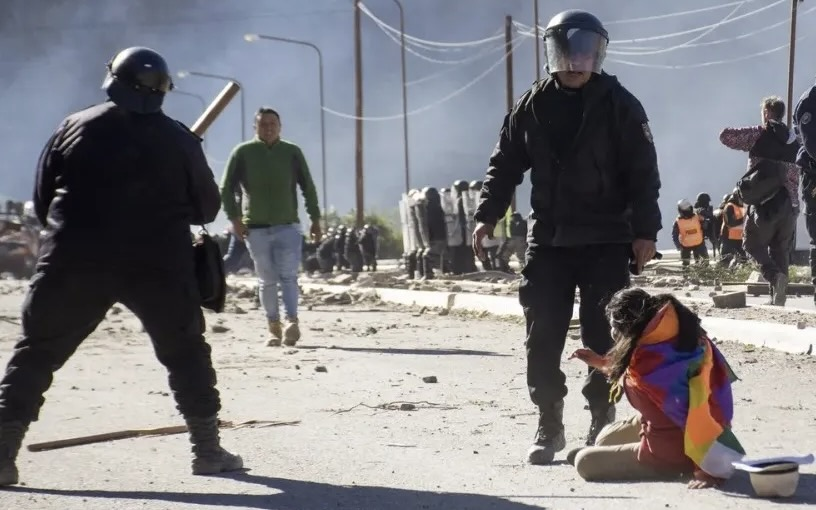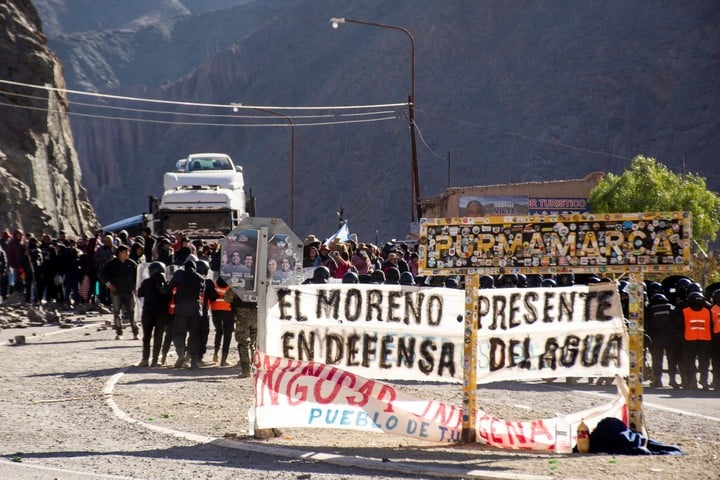The political landscape in Jujuy, Argentina, has been rocked by a fierce resistance against constitutional reforms championed by conservative Governor Gerardo Morales on June 17 in Purmamarca. These reforms have drawn the ire of Indigenous communities, trade unions, and social movements, leading to massive protests throughout the province. However, the response from state forces has been marked by heavy-handed repression.
A poignant example of this repression unfolded, where police forcefully quashed a blockade on Highway 9 organized by Indigenous communities and social movements. The use of tear gas, rubber bullets, and batons left many injured, including 17-year-old Mijael Lian Lamas, who tragically lost an eye after being struck by a rubber bullet. Such acts of violence only serve to galvanize the resolve of the protesters.

The situation in Jujuy has sparked deep concerns both at home and abroad. Horacio Pietragalla Corti, the National Secretary of Human Rights, personally visited the province to assess the ongoing situation and called for a dialogue between the government and the diverse social sectors engaged in protest. Pietragalla warned of further deterioration if the legitimate grievances raised by these communities are left unaddressed.
At the heart of the opposition lies two key points of contention within the constitutional reforms. Firstly, the amendment to Article 36, which deals with the "right to private property," has raised alarms due to its potential to empower property holders and enable the eviction of Indigenous communities without property titles. Secondly, the reforms include provisions that explicitly prohibit road and highway blockades, posing a significant threat to the right to peaceful protest and the full enjoyment of human rights.
The resistance against these reforms has not gone unnoticed. The Association of State Workers (ATE) has announced a national strike on June 22, demanding an end to repression against the people of Jujuy and the reversal of the constitutional reforms. Legislators from the ruling party, along with trade unions and human rights defenders, have voiced their rejection of the brutal repression and have organized a mass mobilization outside the Jujuy Provincial House. Their collective aim is to expose the undemocratic nature of the reforms and stand in solidarity with the resilient protesters.
Leading human rights organizations, including Amnesty International and the Center for Legal and Social Studies (CELS), have unequivocally called for the immediate suspension of the constitutional reforms in Jujuy. They highlight numerous irregularities in the approval process, the exclusion of key social sectors from meaningful discussions, and the potential infringement on the National Constitution and international human rights treaties. These organizations stress the urgent need for inclusive and participatory debates to safeguard the rights and well-being of all members of society.
The ongoing struggle against the constitutional reforms in Jujuy serves as a stark reminder of the fight for social justice and human rights. The unity displayed by Indigenous communities, trade unions, and progressive organizations demonstrates the unwavering spirit of the people in the face of brutal repression. The demands for the suspension of the reforms and the resounding outcry from national and international actors underscore the critical importance of upholding democratic principles and ensuring the protection of human rights. The resistance in Jujuy stands as a stark warning against the encroachment of fascist agendas and emphasizes the need for constant vigilance to safeguard the democratic fabric of Argentina.

